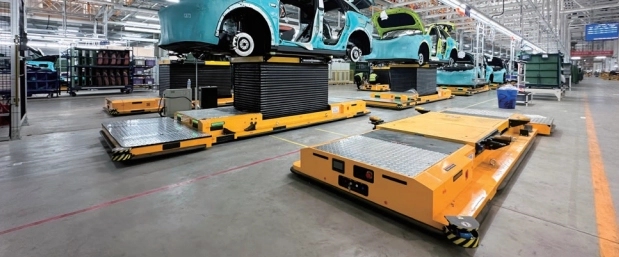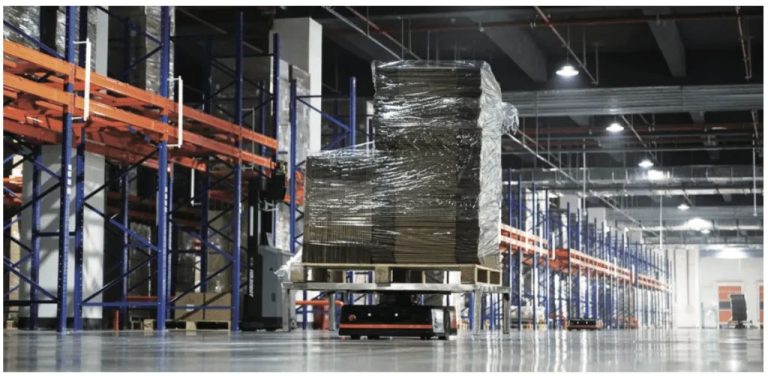
想改善你的仓库工作吗?本指南说明了为什么仓库管理系统(WMS)是关键。它解释了IWMS的好处,比如更顺利的任务和更快乐的客户。此外,它还强调了 W电磁波频谱分配要求 为当今的公司提供稳定的IWMS答案。
什么是仓库管理系统?
仓库管理系统(WMS)是使仓库工作更好的计算机程序。他们处理东西、订单和工人,以保持良好的运行。WMS使用智能技术来管理艰巨的运输任务。这使得它成为希望在繁忙的市场中取得成功的公司的必备品。
WMS的定义和核心功能
WMS是一个运行仓库任务的程序,如获取货物和发送订单。它跟踪东西,处理订单,组织工人。关于库存短缺或库存过多的实时更新。它通过自动化使拣选和包装更快。 Wesar智能仓库管理系统(IWMS-1000) 通过为许多行业构建的智能自动化来改善这些工作。
WMS与其他业务工具的主要区别
与企业资源计划(ERP)系统等大型程序不同,WMS侧重于仓库工作。ERP涵盖了所有公司任务,但WMS深入研究了运输细节。它提供实时物品跟踪和智能拣选路径。它还可以与RFID和条形码扫描仪等技术配合使用。仓库工作报告有助于做出明智的选择。这些特性使WMS非常适合快速、大型的仓库,不像一般程序那样深入。
仓库管理系统如何提高运营效率?
WMS通过使任务自动化、减少错误和巧妙地使用资源来改变仓库工作。这为事情的发展带来了巨大的收益。
简化库存管理
良好的物料控制对仓库的胜利至关重要。WMS显示库存量、现货和移动的实时信息。这跳过了手工计数。它减少了错误,并保持了正确的记录。例如, 威萨IWMS-1000 跟踪许多地方的东西,减少混淆。低库存止损短缺的自动警报。这节省了时间并提高了工作产出。
加强订单履行流程
填写订单是一项艰巨的仓库任务。WMS使每一步都变得更好。它为工人挑选东西规划了智能路径,节省了时间。它按交货日期对订单进行排序,以便快速发货。与运输系统连接可以加快标签和跟踪速度。更快的订单填写意味着完成了更多的订单。使用 Wesar的IWMS解决方案 订单处理速度提高25%,使任务流程更加顺畅。
通过自动化降低运营成本
自动化降低了仓库成本。WMS减少了手工完成的工作,如输入数据或检查库存。这降低了工人的工资成本。它计划更好的仓库设置,以减少额外的移动,节省时间。自动驾驶汽车(AGV)的能源智能路径降低了电费。更少的错误,比如错误的选择,意味着更少的昂贵回报。这些节省使工作更精简。 威萨IWMS-1000 使用自动化来为每家公司带来这些省钱的好处。
仓库管理系统能提高客户满意度吗?
WMS通过更快、更准确、信息清晰地发送订单来帮助客户。这使他们更加忠诚。
更快的交付时间和更高的准确性
客户希望快速、正确的交货。WMS通过更好的拣选和包装加快了订单工作。这使得公司可以在当天或第二天发货。它通过自动检查订单来减少错误,这样正确的商品就会出来。例如,WMS将订单与库存数据进行匹配以避免错误。 威萨IWMS-1000 使用实时检查确保99%的订单正确性。快速、无差错的交付让客户满意。
通过透明运营建立信任
清晰的信息建立了人们对网上购物和运输的信任。WMS让客户从仓库到门口实时跟踪订单。它与客户网站链接,便于进行状态检查。这减少了问题,建立了信任。仓库管理系统还可以随时准备库存,避免延误。清晰的工作加强了客户关系。 Wesar的IWMS解决方案 使跟踪顺畅,帮助公司保持开放和信任。
实施WMS有经济效益吗?
使用WMS可以带来丰厚的收益,从快速削减成本到智能数据的长期收益。
通过优化流程实现长期成本节约
WMS通过使工作更顺畅来节省现金。自动物料跟踪减少了额外的库存,降低了存储成本。聪明的员工计划减少加班费。更好的空间利用更适合仓库,从而推迟了昂贵的新建筑。减少错误,节省退货或重新发货的时间。研究表明,仓库管理系统可以将运行成本降低15-20%。 威萨IWMS-1000 通过定制自动化实现这些节省,从而获得持久的金钱利益。
通过高级分析和报告实现投资回报率最大化
WMS通过数据工具提高投资回报率(ROI)。它提供了关于库存变化、订单正确性和工人产出的清晰报告。这些信息可以发现弱点并改进工作。例如,数据可以显示移动缓慢的商品,从而指导更好的购买。仓库管理系统还可以预测未来的需求,帮助制定库存计划。使用数据可以提高利润。 威萨IWMS-1000 提供出色的分析,帮助公司通过明智的计划提高投资回报率。
| 益处 | 描述 | 影响 |
| 省钱 | 削减员工、库存和错误成本 | 成本削减15-20% |
| 工作速度 | 自动化作业,改进工作流程 | 订单速度提高25% |
| 客户满意度 | 发送正确、快速的订单 | 99%订单正确 |
| 投资回报率 | 利用数据做出更好的选择 | 更多利润 |
WMS如何促进监管合规?
WMS帮助公司遵守行业规则,降低风险,并通过良好的跟踪和记录保持工作强劲。
确保遵守行业标准
仓库面临着严格的规定,尤其是在药品和食品等领域。WMS跟踪精细物品的温度和湿度等信息。它确保了危险货物的安全处理,并遵守安全规则。自动工作流程符合ISO或FDA等标准。 威萨IWMS-1000 具有合规工具,使规则遵循变得容易。
通过全面的记录保存将风险降至最低
清晰的记录是审计和遵守规则的关键。WMS保存库存变动、工人任务和订单历史的数字日志。这些日志为检查提供了清晰的路径。仓库管理系统还会标记问题,如库存过期,以阻止违规行为。将记录保存在一个地方可以降低罚款或停工的风险。 Wesar的IWMS解决方案 提供强大的记录保存功能,确保公司安全合规。

谁是 WESAR 为什么选择它们来满足您的WMS需求?
W电磁波频谱分配要求 是IWMS解决方案的顶级名称。他们以提供满足当今公司需求的定制智能系统而闻名。
概述 WESAR 作为值得信赖的WMS提供商
WESAR专注于智能仓库系统,提供促进工作和增长的解决方案。基于 wesar.cnWESAR将高科技与行业专有技术相结合,提供稳定的IWMS平台。他们的系统适用于大大小小的公司,从网上商店到工厂,确保了顺利使用和良好的效果。Wesar对质量的关注使其成为仓库升级的可靠选择。
为不同行业提供量身定制解决方案的专业知识
WESAR擅长为零售、医药和航运等领域塑造IWMS。他们的 IWMS-1000 适合特殊需求,如冷藏或快速订购工作。这种灵活性为公司提供了与其独特问题相匹配的答案,促进了工作和规则遵循。
致力于创新和客户支持
WESAR在AI数据工具和物联网链接等新功能方面保持领先地位。他们的IWMS随着行业的变化而增长,提供长期价值。WESAR还提供全天候的客户帮助,包括培训和修复,以保持设置和工作的顺利进行。这种对新想法和服务的关注使WESAR成为顶级的WMS提供商。
结论
仓库管理系统是当今公司的必备品。他们加快了工作速度,让客户更快乐,并节省了资金。仓库管理系统组织物品、催促订单、削减成本并遵守规则。 威萨IWMS-1000 在强大的数据工具和帮助的支持下,为许多行业提供定制、智能的答案。使用WMS可以帮助公司更好地工作并保持强大。
仓库管理系统常见问题
哪些行业从使用WMS中受益最大?
在线商店、零售、医药和工厂等领域从WMS中获益匪浅。他们处理大量库存和棘手的运输。 威萨IWMS-1000 使用自定义工具帮助这些字段实现速度和规则遵循。
实施仓库管理系统需要多长时间?
根据仓库的大小和复杂性,设置需要3-12个月的时间。小型设置可能需要3-6个月。大公司需要更多的时间。 Wesar的IWMS解决方案 包括帮助使其更快。
小型企业能否从WMS中受益?
是的,小公司通过更快的工作和更少的错误从WMS中获益。灵活的解决方案,如 威萨IWMS-1000 适合小型设置,提供廉价的自动化和物料控制。








